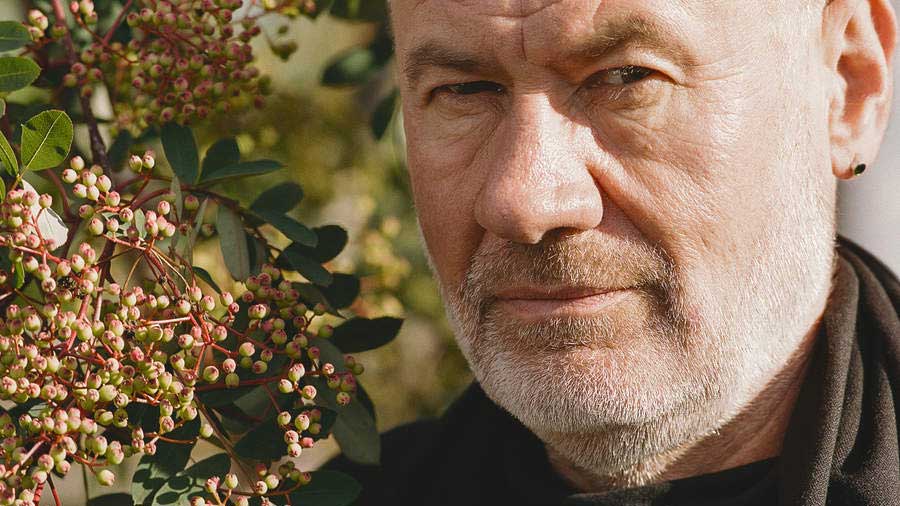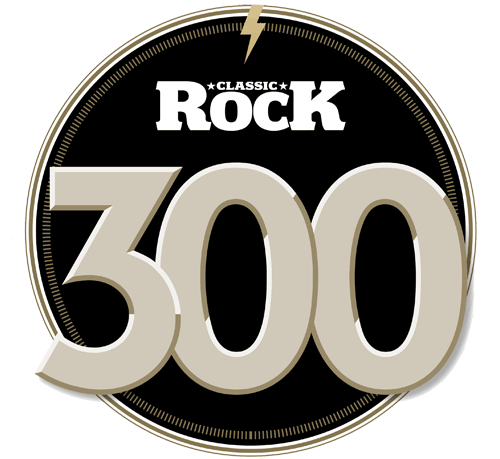Fish reflects: loss, longevity, and hanging on in an unkind industry
Unlike most people, Fish says he actually enjoys getting old, thank you very much


This interview was conducted to mark the 300th issue of Classic Rock magazine, which launched in 1998. The anniversary issue is available to purchase online, and also features interviews with Gene Simmons, Def Leppard, Alice Cooper, Geddy Lee, Justin Hawkins, Rick Nielsen, Tony Banks, Slash and many more.
In September 1998, Fish was coming off the back of his 1997 album Sunsets On Empire, which he’d co-written largely with a then relatively unknown Steven Wilson (Porcupine Tree had only released their fourth album Signify in 1996, and a deal with Kscope was still over a year away).
Today, as the one-time Marillion frontman talks to Classic Rock from his home studio, where he recorded what he says is his final ever album, Weltschmerz, and ponders what he’ll do next, he recalls those early days of the magazine. It appears it was not a happy time for him.
“1998?” he muses. “I was about to go into the throes of a divorce. I lost my house and everything.”
Thankfully he seems much more pleased with his life almost a quarter of a century later.

That sounds a bit grim.
It was a heavy-duty time for me during those years, the end of the nineties, beginning of 2000s. The hard bitter thump of reality of my situation.
Do you actually remember Classic Rock coming out?
Sign up below to get the latest from Classic Rock, plus exclusive special offers, direct to your inbox!
I have memories of it. I think I probably still have one of the early issues. I’m one of those magpies that keeps all the stuff. I’ve got all the Qs. I’ve even got [90s rival to Q] Vox, for fuck’s sake. I remember it was the whole Classic Rock thing and it was like, I’m going to move on from the Kerrang! days. It was up against Q magazine as well.
Classic Rock was where the big rock acts came to roost.
I welcomed that. By that point I’d gone completely off Q. I’d stopped buying it because it was too trendy. Classic Rock seemed to fill a need for rock fans whose tastes were being ignored by other magazines at the time. When Classic Rock came out it was like, that’s where my fans have got to go, so that’s where we aim at. It was a godsend.
It was a bit like what Kerrang! was to Marillion back in the early eighties. I think when Kerrang! came out we found a bit of a niche in them. And then Classic Rock came out, and obviously Prog magazine followed. With Classic Rock you were suddenly working with the journalists that you knew from before. It became a home for a lot of the journalists that you respected, that you knew, that understood what we were trying to do as rock people.
It’s been twenty-four years since Classic Rock came along and, great music aside, things have changed almost beyond recognition.
It’s changed dramatically in terms of album versus streaming. General piracy really affected us. You could tell by the sales. Going on to the Russian torrent sites on the internet was very demoralising. When Weltschmerz came out, we had something like 400,000 true album streams on the streaming sites, and we did 30,000 album sales.
That shows where people went. People are used to getting music for free. That’s one of the major challenges. But I think having the support of mags like Classic Rock and Prog magazine, and knowing there were still people out there that were interested in your music did keep me going.
Do you have any special high points you’d care to pinpoint from between 1998 and now?
Weltschmerz. I was very proud of that period. I think getting Weltschmerz out and having declared what I was going to do and achieving it, that was a high point.
And on the flip-side, what have been the low moments?
On a personal level, when the first marriage collapsed, at the same time as losing my house and moving in here. But, as I said before, I built this studio, and in 1991, when I built it, it nearly killed me. I was building a studio, fighting Marillion, all at the same time. I completely lost possession at that time. But I got through it. I’m sitting here in the studio I built back in 1991. So, as I say, lows. I try to avoid saying I’ve got regrets. So retirement beckons.
But what would happen if you were hit by a wave of creativity?
I’ll get a hook that will hit me during the day. Or I might find myself listening to something and going,: “Ooh.” But I avoid it. I’ve been there, I don’t need that now. It’s something I don’t want to do. I put such a high benchmark up there with Weltschmerz. I made it, I’ve done it. And now I want to write. I’m okay with it.
It’s cool to be old. It is. It’s great. And sometimes it does take me aback when you get somebody that gives you such reverence and you ask why and they say you’ve been in the business for forty years. The accolade of being able to survive this long in an industry that’s not kind to individuals. I’m still hanging on by bloody fucking fingernails.
Writer and broadcaster Jerry Ewing is the Editor of Prog Magazine which he founded for Future Publishing in 2009. He grew up in Sydney and began his writing career in London for Metal Forces magazine in 1989. He has since written for Metal Hammer, Maxim, Vox, Stuff and Bizarre magazines, among others. He created and edited Classic Rock Magazine for Dennis Publishing in 1998 and is the author of a variety of books on both music and sport, including Wonderous Stories; A Journey Through The Landscape Of Progressive Rock.

